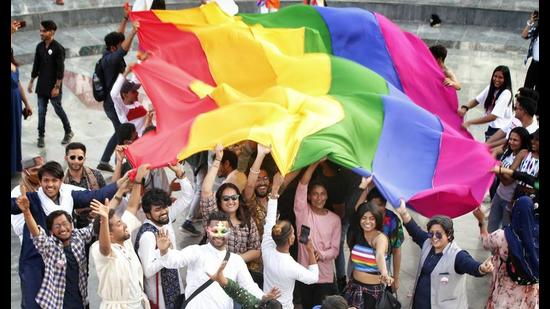| Hello and welcome to Mind the Gap where we're celebrating Pride Month. This week, I'm passing the mic to senior advocate Saurabh Kirpal, an openly gay lawyer and one of the team to successfully argue the case against criminalisation of homosexual sex in the Supreme Court. Read on… THE BIG STORY: Pride Month is as good a time as any to ask, what next?  By Saurabh Kirpal The summer of '69, as the song by Bryan Adams proclaims, were the best days of his life. Sadly, life wasn't quite as good for the LGBTQI+ community in the June of that year when, faced with consistent police brutality, riots broke outside the iconic Stonewall Inn, a gay bar in New York. The riots lasted six days and marked the first time that the queer community stood in the open and fought rather than hide in the shadows. That act of defiance in now commemorated as Pride Month not only in the US, but across the world. It is an occasion not only to remember the past, but also declare proudly to the world that we exist. So, it seems like a good time to take stock of not only how far we have come in our fight against discrimination, but also what the next steps for the community are. Fighting prejudice The battle against the archaic section 377 was won in 2018, but the fight against prejudice towards the queer community has barely even begun. The written words of the law as well as the uneven and unfair application of the rules deny LGBTQI+ citizens of our country the right to attain their full potential. Hostile discrimination against the community is one of the last areas where the law allows the state to treat people unequally on the basis of an innate attribute, i.e. their gender or sexuality. Same sex couples cannot marry and thus do not have access to a host of spousal rights and benefits taken for granted by heterosexuals. The issue is not only about access to monetary benefits, important as they are. The pandemic has also shone a spotlight on the fact that even the basic right to meet your partner in hospital when they are sick does not exist for the queer community. Even when discrimination is not written into the law, in practice LGBTQI+ people face daily harassment. Access to employment is difficult, particularly in male-dominated professions and businesses. The absence of a general anti-discrimination law allows private landlords to refuse accommodation to LGBTQI+ people. While there is no bar in law from any two people opening a joint bank account, convincing a branch manager of a bank to permit a same sex couple to open an account is a herculean task. Making positive change happen The queer community cannot wait for society to evolve and gradually earn their basic human rights. There is in any event no guarantee that the evolution of society will be progressive. To make positive change happen, members of the community, along with their straight allies, will have to demand and fight for their rights. The courts will be the first places where a citizen would seek fulfilment of the constitutional promise of freedom and equality. But the battle will also have to be carried to the court of public opinion. Civil society will have to be convinced that we are not asking for special rights, just the basic right to live with dignity. The war against hate, prejudice and discrimination can be won, but that requires perseverance and courage. One can only hope that Pride Month will not be just another moment for corporate gimmickry, but would inspire a new generation to reach out and take what is rightfully theirs – their humanity. Do you have a coming out story that you'd like to share? Write to me at: Namita.bhandare@gmail.com |